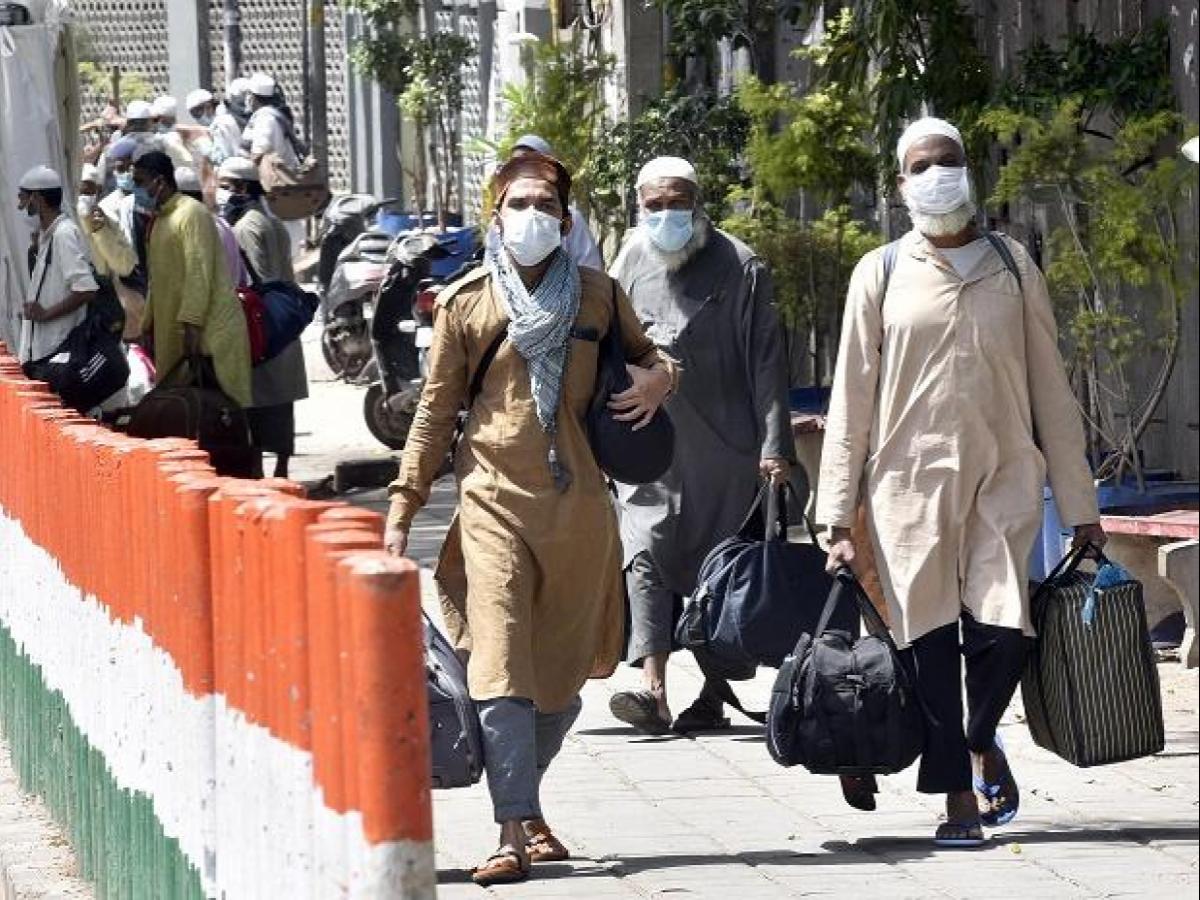Eid was observed this year in homes, rather than in massive congregations.
The internet was meant to be a pathway to the world. Conversations can take place across time zones in real time, although it has taken the restrictions imposed during the Covid-19 pandemic to teach even Silicon Valley that the earlier insistence on staff working from offices was an error. The giants of the virtual world—Google, Amazon, Netflix, Baidu, Alibaba, to name a few—had to either follow manufacturing industries in shutting up shop temporarily or to allow the bulk of their employees to work from home. Surprisingly for those whose habits of thought remain moored to those acquired across generations, the work proffered by those at home often turned out to be better than when they were in their offices. A minister during the A.B. Vajpayee era began the still ongoing process of seeking to police the Information Technology (IT) industry in India the way other industries had long been. Some corporates that had flourished under Licence Raj began Information Technology outfits. Staff associated with the creation of software were asked to report for work punctually every morning (or get their salaries docked), leave only after office hours and wear ties and preferably a suit as well while at work. Needless to say, such corporates fared poorly. It is not an accident that the wearing of suits (or even jackets) is regarded with some disdain in locations where the Knowledge Industry flourishes. After all, who would want to put on such an uncomfortable garb if there were no compulsion to do so? The IT industry in India grew exponentially until the Vajpayee and Manmohan Singh governments sought to regulate it in a manner that included the criminalization of several outcomes in which internet platforms as such had no responsibility. Despite the laws and regulations proscribing “hate speech” (itself a somewhat diffuse term), webspace has witnessed a tendency for those having similar likes—and dislikes—to cluster around only each other. Through the consequent magnification of the echo of their views, several of their prejudices get embedded in their reasoning.
Among many netizens was the reflexive belief that Muslims in India are represented by the adherents of the Tablighi Jamaat (which managed to escape the eagle eye of the authorities to held a mammoth indoor rally in the heart of the national capital, with unfortunate consequences for the battle against Covid-19). The fact is that Tablighis represent only a tiny proportion of Muslims, although the way most of the community remained silent about the behaviour of some of the members of that group led to such a fact not being as obvious to the larger public as it ought to have been. However, Eid, the close of the period of Ramzan, showed India’s Muslims to be as conscientious about public health as any other community. The observance of Eid-ul-Fitr this year overwhelmingly took place in homes, rather than in massive congregations as previously. And in a welcome break from a tradition that has not been sanctioned in the Holy Quran (women and men being separated for prayer), women and men prayed together in several homes, often for the first time. Several individuals gave to the poor the moneys saved through the absence of the lavish Iftar parties that had been a staple of the past. Both these changes in past practice deserve to be continued even in a situation where the novel coronavirus may no longer be the public health threat that the WHO (somewhat belatedly) proclaimed it to be. In a country which in many regions regarded the education of women as a waste of money, time and effort, Muslim women are joining their sisters of other faiths in filling schools and colleges. Several have distinguished themselves, including in fields such as medicine and engineering. This is a world away from the vision of the Taliban or their ideological cousins in other parts of the world, who believe that a woman’s place is in the home, when not being made to do back-breaking work in the fields or elsewhere. Despite the continuation of the Great Indian Lockdown to (at least) the close of this month, many had believed that large groups of people would assemble and gather outside their homes in order to celebrate the end of the period of fasting. Instead, across India, Muslims remained at home during that day, acting no differently from Hindus, Christians, Buddhists, Sikhs and those of other faiths. They behaved in the manner good citizens are expected to, by obeying the rules of the lockdown and ensuring social distancing. If the images appearing on television screens about the doings even in hospital wards of some of those who had attended the New Delhi Tablighi Jamaat meeting are accurate, such was the opposite of the behaviour of a community that numbers nearly 200 million across India. Fortunately, such individuals are not taken as role models but as a fringe group by India’s Muslims.
Whether it be the world of cinema, education, business or literature—or in diverse other fields—Muslims in India have excelled, both men and women. The restraint and dignity shown by them during Eid proves the point that the people of India ought never to have been divided on the basis of faith. Such a division was sought (and successfully implemented) by Winston Churchill, Conrad Corfield and other backers of colonialism in their attempts to permanently weaken the people of the subcontinent through fragmentation.

